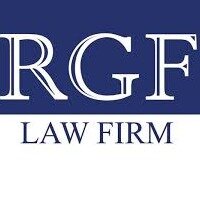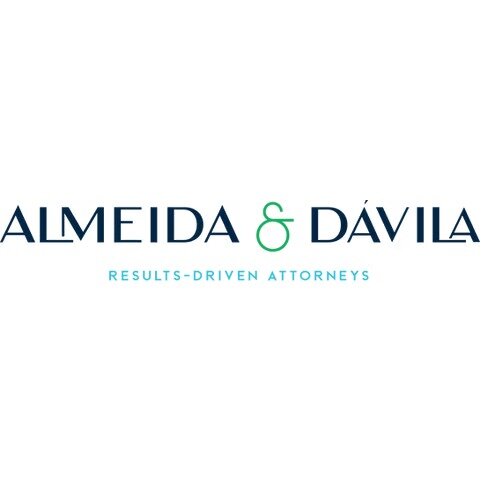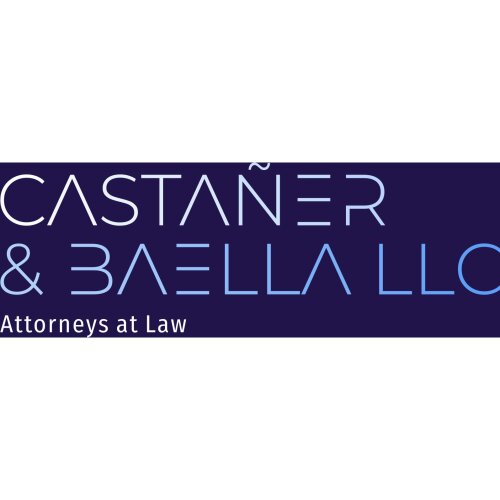Best Accidents & Injuries Lawyers in Puerto Rico
Share your needs with us, get contacted by law firms.
Free. Takes 2 min.
Or refine your search by selecting a city:
List of the best lawyers in Puerto Rico
About Accidents & Injuries Law in Puerto Rico
Accidents and injuries law in Puerto Rico encompasses legal cases that involve personal injuries resulting from accidents. These can include car accidents, slip and fall incidents, workplace injuries, and medical malpractice among others. The purpose of this law is to provide compensation for individuals who have suffered physical, emotional, or financial harm due to the negligence or wrongful actions of others. Understanding the nuances of these laws can be crucial for individuals seeking justice and compensation for their injuries in Puerto Rico.
Why You May Need a Lawyer
Hiring a lawyer can be crucial in several situations involving accidents and injuries in Puerto Rico. Common scenarios where legal assistance may be necessary include:
- Dealing with insurance companies that are unwilling to provide a fair settlement.
- Establishing liability and gathering evidence when fault is disputed.
- Navigating complex legal procedures and deadlines required in personal injury claims.
- Negotiating settlements or representing you in court to ensure adequate compensation.
- Understanding and leveraging local laws and precedents to strengthen your case.
Local Laws Overview
Puerto Rico operates under a civil law system, which can differ significantly from the common law system in the mainland United States. Key aspects of local laws relevant to accidents and injuries include:
- Comparative Negligence: Puerto Rico follows a comparative negligence rule, which means that if you are partially at fault for your accident, your compensation may be reduced by your percentage of fault.
- Statute of Limitations: Personal injury claims generally must be filed within one year from the date of injury, making timely action essential.
- No-Fault Insurance: In motor vehicle accidents, Puerto Rico requires no-fault insurance, meaning your own insurance pays for your medical expenses and lost wages, up to policy limits, regardless of who was at fault.
- Strict Liability: In cases involving defective products, manufacturers may be held strictly liable for injuries caused by their defective products.
Frequently Asked Questions
What should I do immediately after an accident?
It's important to seek medical care, document the accident scene if possible, obtain contact information from witnesses, report the accident to the relevant authorities, and contact a lawyer.
How is compensation determined in a personal injury case?
Compensation is typically based on the extent of injury, medical expenses, lost wages, pain and suffering, and any contributory negligence involved.
Who can file a personal injury lawsuit?
The injured party themselves or their representatives, like guardians or family members in wrongful death cases, can file a lawsuit.
What is comparative negligence and how does it affect my case?
Comparative negligence means your compensation can be reduced if you are found to be partly at fault for your injury. Your lawyer can help argue your level of responsibility.
How long does it take to resolve a personal injury case?
It varies. Some cases settle in a few months, while others, especially those that go to trial, can take years.
What if the insurance company offers me a settlement?
Before accepting any settlement offers, it's advisable to consult with a lawyer to review if the offer adequately covers your losses.
Can I take legal action if I was injured at work?
Yes, you may be entitled to worker's compensation benefits, and in some cases, you can take legal action against third parties involved.
Do all personal injury cases go to court?
No, many personal injury cases are settled out of court. An attorney can facilitate negotiations to reach a fair settlement.
Is there a time limit to see a doctor after an accident for legal purposes?
While there’s no strict limit, seeking immediate medical attention helps document your injuries and strengthens your case.
Do I have to pay legal fees upfront when hiring an attorney?
Personal injury attorneys often work on a contingency fee basis, meaning they only get paid if you win, thus eliminating upfront legal fees.
Additional Resources
For more information or assistance, consider the following resources:
- Puerto Rico Department of Justice: Provides information related to legal procedures on the island.
- Puerto Rico Bar Association: Can help locate qualified attorneys for your specific needs.
- Office of the Insurance Commissioner: Offers guidance concerning insurance-related inquiries and disputes.
- Legal Aid Society of Puerto Rico: Provides legal services for those who qualify.
Next Steps
If you believe you require legal assistance for an accident or injury case in Puerto Rico, it is advisable to:
- Document all details and evidence related to your case, including medical reports, accident reports, and any witness statements.
- Research and contact qualified personal injury attorneys who have experience in Puerto Rican law.
- Take advantage of free consultations to discuss your case and evaluate legal representation options.
- Follow through on any legal advice given and adhere to deadlines related to your claims.
By taking these proactive steps, you can ensure that your rights are protected, and you receive the compensation you deserve.
Lawzana helps you find the best lawyers and law firms in Puerto Rico through a curated and pre-screened list of qualified legal professionals. Our platform offers rankings and detailed profiles of attorneys and law firms, allowing you to compare based on practice areas, including Accidents & Injuries, experience, and client feedback.
Each profile includes a description of the firm's areas of practice, client reviews, team members and partners, year of establishment, spoken languages, office locations, contact information, social media presence, and any published articles or resources. Most firms on our platform speak English and are experienced in both local and international legal matters.
Get a quote from top-rated law firms in Puerto Rico — quickly, securely, and without unnecessary hassle.
Disclaimer:
The information provided on this page is for general informational purposes only and does not constitute legal advice. While we strive to ensure the accuracy and relevance of the content, legal information may change over time, and interpretations of the law can vary. You should always consult with a qualified legal professional for advice specific to your situation.
We disclaim all liability for actions taken or not taken based on the content of this page. If you believe any information is incorrect or outdated, please contact us, and we will review and update it where appropriate.
Browse accidents & injuries law firms by service in Puerto Rico
Puerto Rico Attorneys in related practice areas.
Browse accidents & injuries law firms by city in Puerto Rico
Refine your search by selecting a city.











